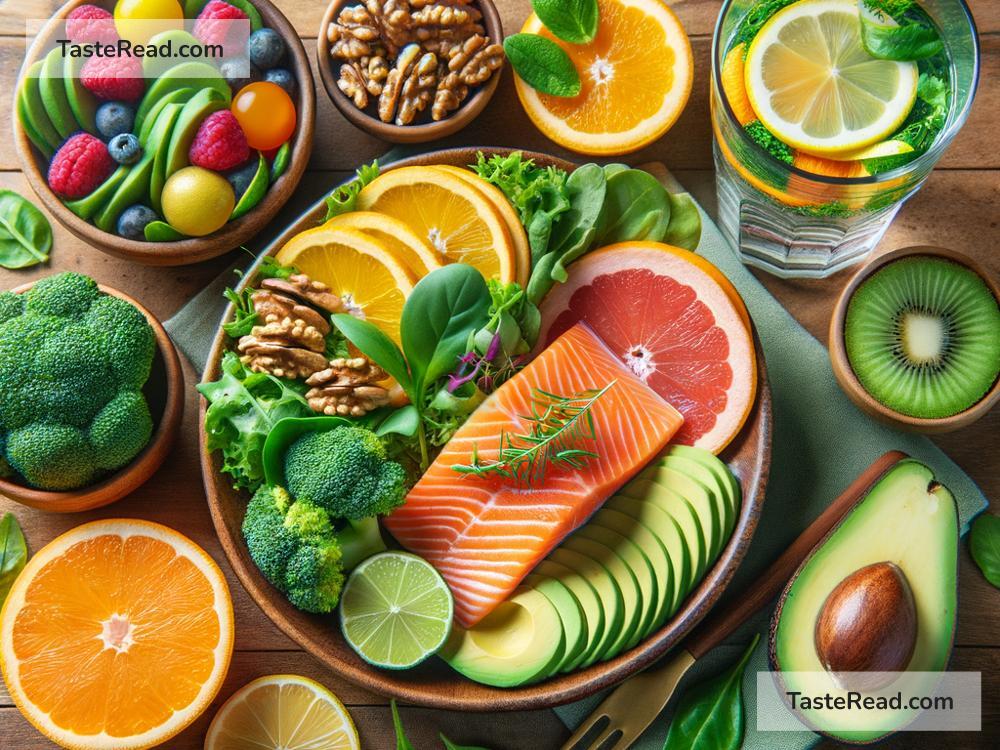Foods That Reduce The Risk of Herniated Discs: Nourishing Your Spine
Taking care of your spine is crucial for overall health and wellness. Your spine is made up of many parts, including intervertebral discs, which act as cushions between your vertebrae. These discs play a critical role in absorbing shocks and supporting movement. However, certain lifestyle choices, including poor diet, can weaken them, increasing the risk of herniation. A herniated disc, also known as a slipped or ruptured disc, happens when the softer core of the disc bulges out through its outer layer. This condition can lead to pain, discomfort, and mobility problems.
The good news is that proper nutrition can help protect the health of your spine and potentially reduce the risk of a herniated disc. Here’s a look at foods that can strengthen your discs and keep your spine happy.
1. Calcium-Rich Foods For Strong Bones
Calcium is essential for maintaining strong bones, including the vertebrae that support your spine. Healthy vertebrae provide stability to the discs, reducing strain on them. When your bones are strong, the chances of disc problems decrease.
Foods that are rich in calcium include:
– Dairy products like milk, yogurt, and cheese
– Leafy greens like kale, spinach, and collard greens
– Fortified products such as almond milk or orange juice with added calcium
– Almonds, sesame seeds, and tofu
2. Vitamin D: The Partner of Calcium
Vitamin D helps your body absorb calcium effectively. Without enough vitamin D, your bones can become weak even if you’re getting sufficient calcium in your diet. Weak bones can increase spinal problems over time, so vitamin D is an essential nutrient for spinal health.
Foods high in vitamin D include:
– Fatty fish like salmon, tuna, and mackerel
– Egg yolks
– Fortified foods such as cereals and milk
– Mushrooms (when exposed to sunlight before harvesting)
Additionally, spending 10-15 minutes in the sun can provide your body with natural vitamin D.
3. Omega-3 Fatty Acids: Fighting Inflammation
Inflammation can weaken the body, including the spinal discs. When your discs are inflamed, they may become more vulnerable to injury or herniation. Omega-3 fatty acids are powerful anti-inflammatory compounds that can help reduce swelling and support overall spine health.
Sources of omega-3s include:
– Fatty fish like salmon, sardines, and trout
– Chia seeds, flaxseeds, and walnuts
– Fish oil supplements (though whole foods are preferable for the most nutritional benefits)
4. Magnesium: Supporting Disc Function
Magnesium is often overlooked, but it’s a key mineral for muscle and nerve function. It also plays a role in supporting the structural integrity of the intervertebral discs by helping maintain bone density and reducing muscle spasms, which can strain your spine.
Magnesium-rich foods include:
– Nuts and seeds like almonds, sunflower seeds, and pumpkin seeds
– Legumes such as lentils, black beans, and chickpeas
– Whole grains like brown rice and quinoa
– Leafy greens such as spinach and Swiss chard
5. Vitamin C: Building Collagen
Your discs contain collagen, a type of protein that provides firmness and elasticity. Vitamin C is vital for the production of collagen, making it essential for healthy discs and connective tissue. It also acts as an antioxidant, protecting your discs from damage caused by oxidative stress.
Top vitamin C sources include:
– Citrus fruits like oranges, grapefruits, and lemons
– Strawberries
– Bell peppers (red, green, and yellow)
– Broccoli, cauliflower, and tomatoes
6. Protein: Repair and Regeneration
Protein helps with tissue repair and contributes to muscle strength. Strong supporting muscles around the spine can reduce strain on your discs. Additionally, protein provides the building blocks needed to regenerate tissues in your spine and maintain its structure.
Good sources of protein are:
– Lean meats such as chicken and turkey
– Fish and other seafood
– Eggs
– Dairy products
– Plant-based proteins like beans, lentils, tofu, and quinoa
7. Hydration: Keeping Discs Cushioned
Your spinal discs are partially made up of water, and they need proper hydration to remain spongy and resilient. Dehydrated discs can lose their cushioning ability, increasing the risk of herniation.
Stay hydrated by:
– Drinking plenty of water throughout the day
– Eating water-rich foods, such as cucumbers, watermelon, and celery
– Limiting consumption of dehydrating beverages like coffee and alcohol
8. Whole Foods: Reducing Processed Food Intake
Processed foods, especially those high in sugar and unhealthy fats, can lead to inflammation and weaken your spine’s health over time. Opt for whole and minimally processed foods to avoid chemical additives that can harm your body.
Final Thoughts
While diet alone cannot guarantee that you’ll never experience a herniated disc, eating nutrient-rich foods can certainly reduce the risks and support overall spine health. Incorporate foods high in calcium, vitamin D, omega-3s, magnesium, vitamin C, and protein into your meals regularly. Along with proper hydration, avoiding processed foods, and staying active, you can take proactive steps to protect your spine for years to come.
Remember, your spine does a lot for you—let’s treat it with the care it deserves! Healthy eating isn’t just about preventing illnesses—it’s about building strength and resilience in every part of your body, including your back.


